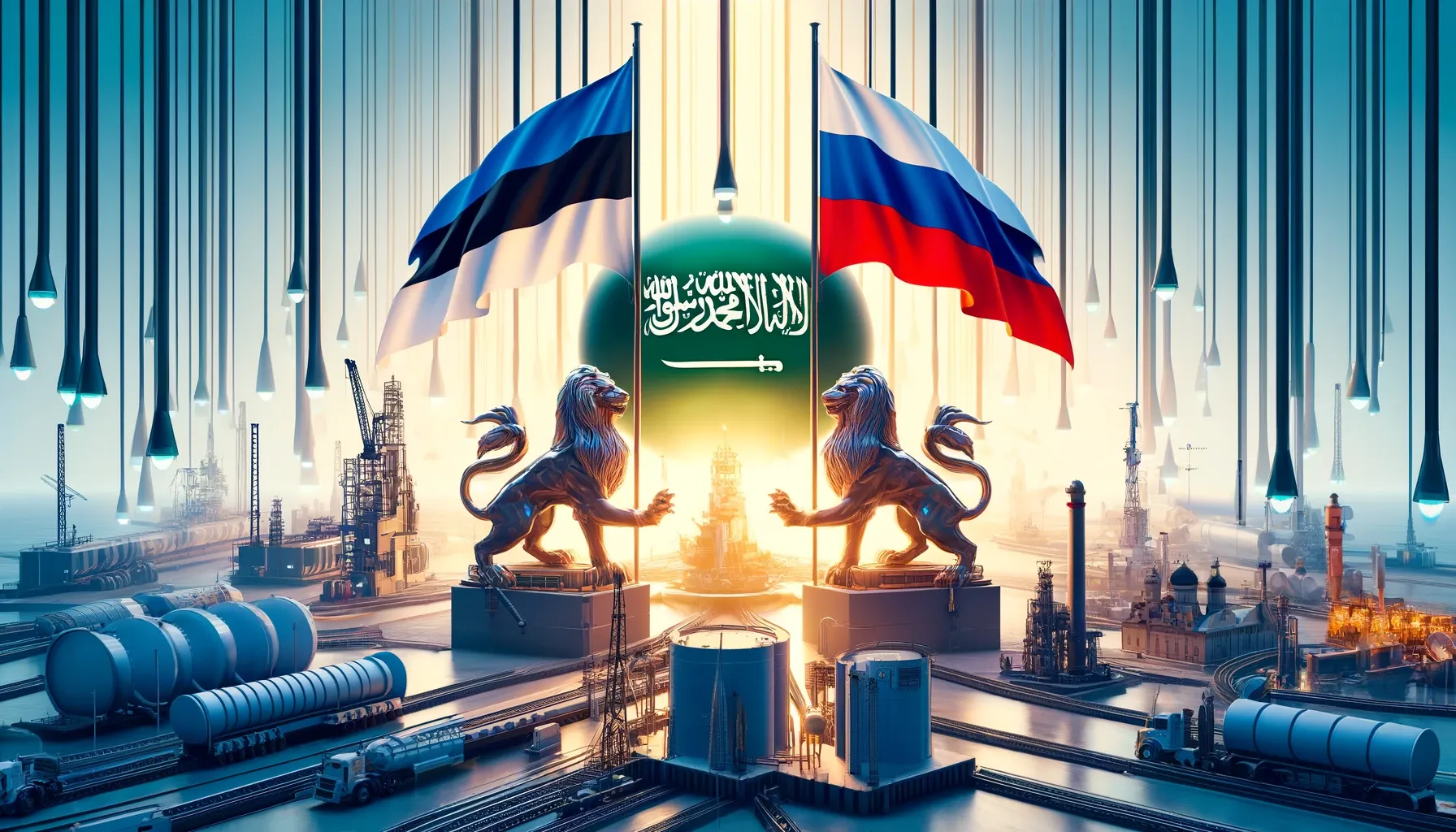Estonia's Silent Endorsement of Saudi Arabia: Implicit Support for Russia's Oil Strategy?
In recent developments, Estonia has entered into a significant cooperation agreement with Saudi Arabia, focusing on modern transportation methods. This memorandum of understanding (MoU), signed by Estonia's Climate Minister Kristen Michal and Saudi Arabia's Transport and Logistics Minister Saleh bin Nasser Al-Jasser, is ostensibly aimed at

In recent developments, Estonia has entered into a significant cooperation agreement with Saudi Arabia, focusing on modern transportation methods. This memorandum of understanding (MoU), signed by Estonia's Climate Minister Kristen Michal and Saudi Arabia's Transport and Logistics Minister Saleh bin Nasser Al-Jasser, is ostensibly aimed at enhancing technological innovation and infrastructure development in the transport sector. The signing ceremony took place in Riyadh on May 16, 2024. However, this partnership raises critical ethical and moral questions, given Saudi Arabia's pivotal role in the global oil market and its strategic alliance with Russia.
Saudi Arabia and Russia: A Strategic Alliance in Oil
Since the OPEC+ agreement in 2022, Saudi Arabia and Russia have closely coordinated their oil production levels to maintain high oil prices. This cooperation has been economically beneficial for Russia, particularly in light of the stringent Western sanctions imposed due to its invasion of Ukraine. By cutting oil production, Saudi Arabia has helped stabilize oil prices, indirectly supporting the Russian economy by ensuring that its oil revenues remain robust despite reduced export volumes.
BRICS: Expanding Influence and Challenging Western Dominance
The recent inclusion of Saudi Arabia into BRICS, a bloc consisting of Brazil, Russia, India, China, and South Africa, further solidifies the strategic partnership between Russia and Saudi Arabia. BRICS aims to create a multipolar world order that challenges the dominance of Western financial systems, promoting the use of local currencies in trade to reduce dependency on the US dollar. For Russia, this alliance is crucial as it seeks to mitigate the impact of Western sanctions and find new economic partners.
Estonia's Ethical Dilemma
Estonia, under Prime Minister Kaja Kallas, has been a vocal critic of Russia's actions in Ukraine. Kallas has repeatedly condemned the purchase of Russian oil, equating it to financing the war and labeling it as "blood oil." Her administration has urged the international community to impose stricter sanctions on Russia and reduce dependency on Russian energy.
Yet, Estonia's recent agreement with Saudi Arabia, a key player in sustaining Russia's oil revenue, appears to contradict these ethical stances. Saudi Arabia's role in stabilizing oil prices directly benefits Russia, enabling it to continue its military aggression in Ukraine. This partnership raises questions about the consistency of Estonia's foreign policy and its commitment to supporting Ukraine.
The Broader Implications
The partnership between Estonia and Saudi Arabia highlights the complexities and potential hypocrisies in international relations. While Estonia publicly denounces Russian oil, its collaboration with Saudi Arabia—Russia's ally in the oil market—suggests a pragmatic, if ethically ambiguous, approach to global politics. This inconsistency not only undermines Estonia's moral authority but also raises concerns about the transparency and accountability of its foreign policy decisions.
Estonia's deal with Saudi Arabia represents a significant geopolitical maneuver that, while potentially beneficial for technological and infrastructural development, complicates its moral stance against Russia. As the world watches, it remains to be seen how Estonia will reconcile this apparent contradiction and what it means for its long-term strategic objectives and ethical commitments.
Sources:
- Saudi Arabia and Estonia Sign MoU on Future of Modern Means of Transportation
- Saudi Arabia Confirms Commitment to Oil Deal with Russia
- Analysis: What do BRICS invitations mean for the Middle East?
- Why Saudi Arabia and others are vying for BRICS membership
- Saudi Arabia, UAE, Iran give BRICS economic boost, but won’t rival US leadership




